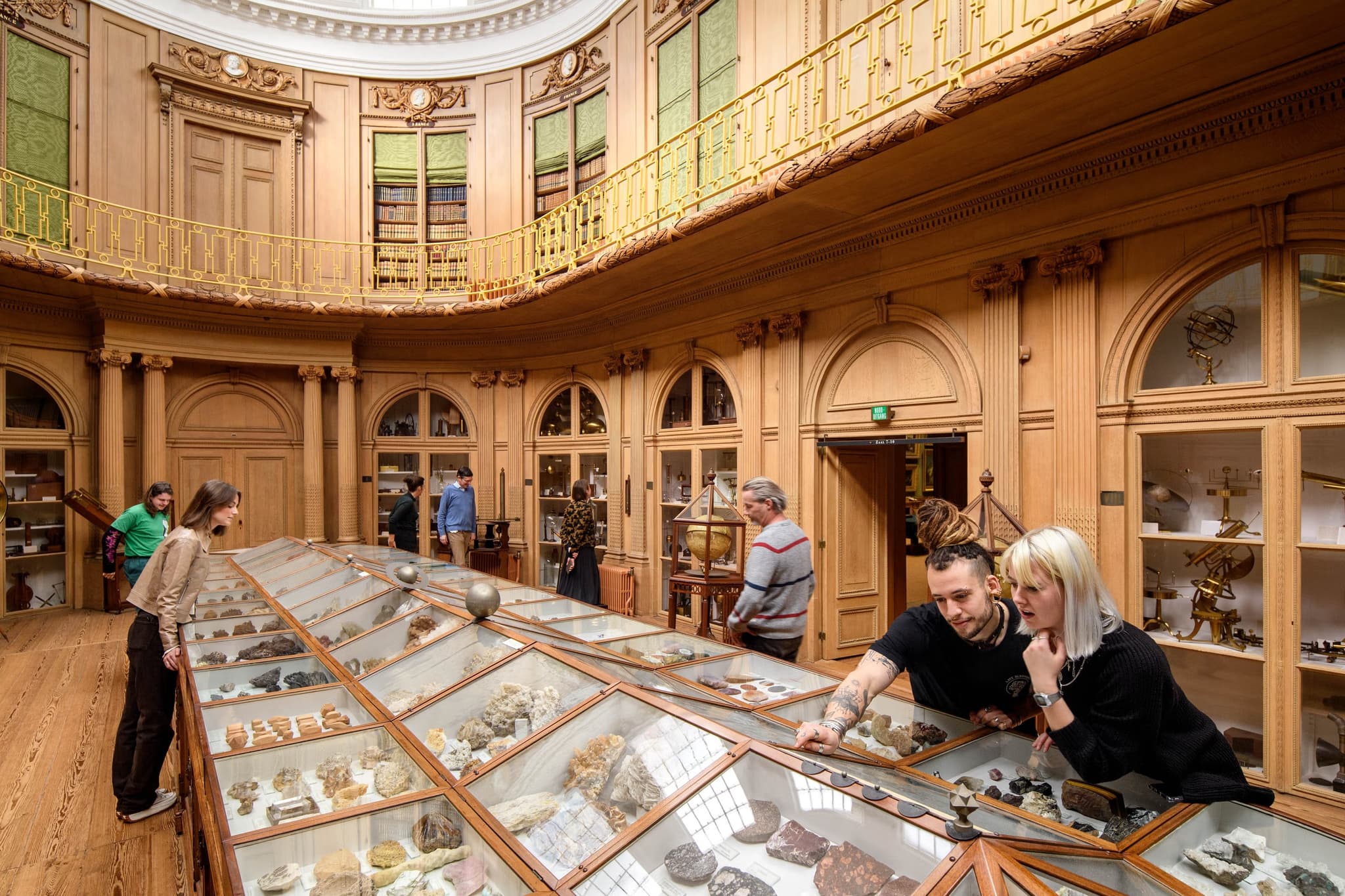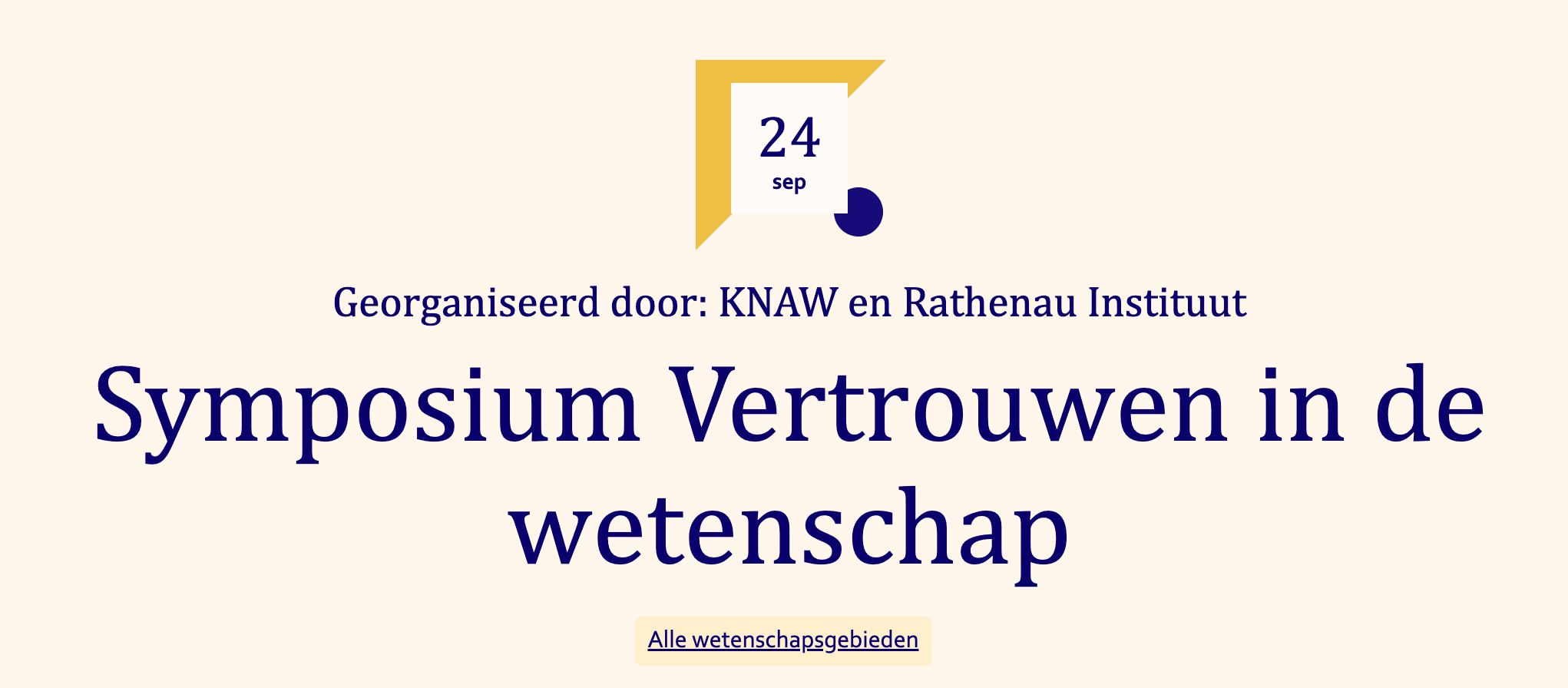Trust in Dutch science is growing, but division is increasing
More Dutch people are giving science a ten out of ten, but there are also more failing grades. The extremes are becoming more visible.
Published on September 6, 2025

Bart, co-founder of Media52 and Professor of Journalism oversees IO+, events, and Laio. A journalist at heart, he keeps writing as many stories as possible.
The Dutch public's confidence in science is high once again. On average, we give science a 7.5, slightly higher than four years ago. This means that science scores better than almost all other institutions, such as the judiciary, the House of Representatives, and large companies. However, the picture is less clear-cut than the figures suggest. Not only has confidence increased, but it is also more divided: more and more Dutch people belong to the group with a high level of confidence, but at the same time, the group that gives science a failing grade is also growing.
The Rathenau Institute investigated this confidence in January 2025 among more than 8,300 people in the Netherlands. The institute has been conducting this representative survey every three years since 2012. In the foreword, director Eefje Cuppen emphasizes that the persistent idea of “declining confidence” is incorrect: “Confidence in science has been high for years compared to other institutions. However, we do see that the contrasts are becoming sharper, and that calls for debate and analysis.”

You can register for the symposium on trust in science here
Two extremes are growing simultaneously
The average score masks a striking shift. The proportion of Dutch people who rate their trust in science as 9 or 10 grew from 20.6% in 2021 to 34.1% in 2025. At the same time, the percentage of failing grades (5 or lower) rose from 9.5% to 14.6%. Whereas the majority of the population used to be in the middle, an increasing proportion is moving toward the extremes.
This polarization is also reflected in the way people talk about science. Associations such as knowledge, facts, innovation, and progress are widely shared. But people with little confidence in science strikingly often mention terms such as money, politics, and the influence of financiers. Proponents, on the other hand, emphasize words such as important and truth.
Politics, education, and age play a role
The report reveals that trust in science is closely tied to personal factors. Political preference is the most decisive factor. Voters for Volt, D66, and GroenLinks-PvdA score well above average. For Forum voor Democratie, the average is below average, and voters of PVV and BBB also tend to show little trust.
Additionally, education level and age also play a role. Highly educated people give science an average score of 8, while those with lower levels of education remain stuck at 6.8. For the first time since the measurements began, age appears to be a significant factor: young people have more confidence, older people less. According to the researchers, this may be due to a feeling of existential insecurity among older people, as well as a lower level of scientific knowledge. Spirituality also appears to have an influence. People who describe themselves as spiritual score lower on average in terms of confidence. Religion, on the other hand, has little effect.
Health wins, inequality loses
Not every field of research inspires the same level of trust. Research into health and medicine enjoys the most support, with more than three-quarters of Dutch people having a lot or complete trust in it. Vaccination research also scores highly. Trust in climate research stands at 55%, and in artificial intelligence at 44%. The Dutch people have the least trust in research into inequality and discrimination, with only 39% expressing confidence in this area, while 28% are explicitly distrustful.
“The most politicized topics are the ones that cause the most division,” says research coordinator Alexandra Vennekens of the Rathenau Institute. “When it comes to climate and inequality, we clearly see that political orientation plays a decisive role. That calls for careful communication, precisely because these are such important social issues.”
Scientists, yes; politicians, no
Interestingly, the Dutch have a great deal of confidence in science itself – as a knowledge institution, in its methods, and in scientists – but hardly any in the way others apply their work. Only 19% trust the conclusions that journalists draw from scientific publications. There is even less trust in politics: barely 10% believe that politicians deal responsibly with scientific insights when making policy. More than half have little to no confidence in this.
What does science contribute to society?
Most Dutch people see science as a source of knowledge, innovation, and a healthier life. More than 60% believe that science contributes to a longer and healthier life, and 68% believe that technology makes our lives easier. On the other hand, fewer than a quarter believe that science helps reduce income inequality or involve citizens more. Low-educated individuals in particular see little connection between science and increased employment opportunities.
Ongoing dialogue needed
The results paint a mixed picture: trust in science remains high, but contradictions are increasing. This is precisely what makes the research relevant for scientists, policymakers, and journalists.
“The connections and shifts we are identifying are important for anyone who wants to translate science into society,” says Vennekens. “It is essential to think through the significance of our results for science communication and policy.” On September 24, the Rathenau Institute, together with the KNAW, is organizing a symposium to further discuss this issue.
